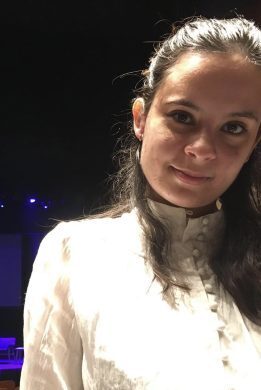By Phoebe Lupton
References to ableism, mental ill-health and suicidal ideation.
I’m autistic, and most of my life is spent in burnout.
Allistic (non-autistic) people reading that sentence may react with disbelief. But what I’m talking about is not the regular kind of too much overtime, not enough leave, toxic boss occupational burnout (although these issues are equally as urgent and valid). I’m talking about a specific kind of burnout that autistic people commonly experience just by living.
We need to talk more about autistic burnout. The autistic community talks about it ad nauseam, and for good reason: it is a major health concern for us. It is also frighteningly easy for us to tumble into burnout, as basically none of our current social structures adequately accommodate our needs.
Take mainstream school, for instance: a hellscape of auditory overload, unpredictable social norms, and unreasonable executive functioning expectations. Simply having to attend high school in particular for five days a week, most of the year for six years left me in a state of dismal mental health by the end of Year 12, from which I haven’t properly recovered seven years later.
My most recent burnout happened at university, where I was studying a postgraduate course that was inaccessible and—despite it being a human services course supposedly underpinned by the tenants of social justice—sneakily ableist. I was chronically exhausted, my anxiety kept spiking at inopportune times, and I eventually dropped out of the course.
We need to talk about autistic burnout, because autistic burnout stops autistic people from thriving, as opposed to surviving. Not that all of us do survive burnout: some of us develop extremely dark thoughts about our lives and whether or not we want to live. But autistic people deserve to thrive as much as everyone else. Sure, thriving as an autistic person can look different to thriving as an allistic person. We don’t need to do all the pub nights, house parties, stadium concerts, or anything else that might propel us into ‘mainstream’ society. Autistics just wanna have fun, in our own ways, but we can’t have fun in any way if we’re barely able to get out of bed.
We need to talk about autistic burnout, because it is a clear bodily marker of the widespread inaccessibility of most societies. My last job was as a trainee educator in childcare, and most aspects of the job were inaccessibility central. The other educators did not accept my autistic traits at all. One middle manager even confronted me one time after witnessing me having a meltdown, which she took personally: ‘I was just trying to give you a correction, which is part of your job, and you started crying. I keep telling you not to do this.’ She then subsequently threatened to report me to upper management for ‘not being able to handle criticism’. I was so overwhelmed by this interaction that I had to leave work early that day, and my doctor had to sign me off work for the rest of the week.
I was already burnt out by that point due to working an inconsistent schedule (despite being full time, not casual) and all of the sensory icks (dirty nappies, anyone?) involved in working with children. I resigned not long after this incident. It’s been two years, and apart from the odd freelance gig, I haven’t been able to go back to work. And you wonder why 34.1 per cent of autistic Australians are unemployed.
We need to talk about autistic burnout, because we can prevent it. A common cause of autistic burnout, especially for girls and women, is masking: like fictional autistic icon Quinni (portrayed by IRL autistic icon Chloé Hayden) from Heartbreak High says, ‘Putting on a face, pretending.’ Autistics mask our traits, because we don’t feel like we’ll be accepted otherwise. It is crucial, therefore, that allistic people look inside themselves, reflect on their own biases relating to disability, and make an effort to be more tolerant of difference. It might be hard, but living as an autistic person in an ableist world is harder.
It is also crucial that the powers that be in schools, universities, businesses, event venues and workplaces make accessibility a priority. Let your students use noise-cancelling headphones and fidget toys in class. Turn down the music and fluorescent lighting in your store, if they need to be on at all. Install more than one goddamn sensory room in your venue. And I swear to god, if you assign your full time staff member an inconsistent, seemingly ever-changing schedule for no rhyme or reason (not that I know from experience at all!) — please reconsider.
Phoebe Lupton is a Celtic and Sinhalese person who makes art on Ngunnawal land. She is autistic and queer. Phoebe’s recent poetry and essays have been published by Antithesis Journal, Portside Review, Cicerone Journal and Archer Magazine, among others. Their creative work is inspired by psychogeography, (extra)sensory perception, and surrealism.
Website: https://phoebelupton.wordpress.com/

